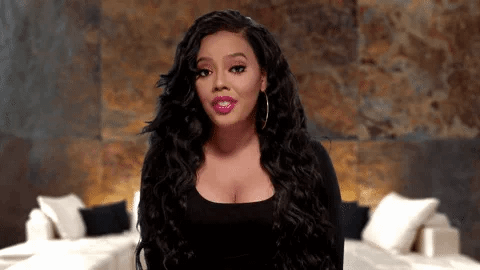Finding the Perfect Career Path
Ask questions, seek information, and be proactive about your career growth ✨
Finding the best career path for yourself can be a herculean task. One, you lack the knowledge to know what’s actually out there because in high school, you were not given enough options, and your parent’s incessant need for you to be a Lawyer, Doctor or Engineer got in the way of you finding anything else.
Somehow, you get into university either settling for a course you didn’t apply for, studying what you want, or, more likely, what your parents chose. Now, you’ve completed the basic education (Secondary School and Undergrad) your parents and elders insisted you get. The world is your oyster. What’s your next step?
If you were anything like me, you know you need a job, but most Nigerian universities aren’t going out of their way to educate you on how to acquire one. If you don’t ask questions, you won’t get information, but here’s my question- How do you know you need to ask questions if no one ever told you anything in the first place? The introvert in me couldn’t fathom asking for anything. I decided to try figuring it out on my own and with help from the internet. It took a significant amount of trial and error, but eventually, I found a path that worked for me.
Here’s another crazy thing I've realised about careers as I get older: more likely than not, the first job or career path you choose is not the one you may end up with. As your life changes so do your needs for a job. You will continuously have to adjust your plans, and particularly in your twenties, you need to be open to that. You need to be willing to try various things to figure out what works for you and what you’re willing to stick with.
To help inform you of your options and provide knowledge you might not get in school, we spoke to our community members about how they got to where they are in their careers, and Danielle Ese shared her six-year experience in the workforce.
3 Women Talk About Switching Industries And Owning Their New Fields
Whether it's learning new skills to excel in the same field or switching to an entirely different industry, anything is possible. The truth, however, is that even though more people are changing career paths and dominating their fields, it is still a very scary process and requires a lot of bravery.
In this article, three Nigerian women discuss successfully switching their career paths, their process, struggles, and lessons.
Danielle Ese
I studied business administration for my undergraduate degree and graduated in 2018.
Based on my coursework, I could practice in either of these areas: Human Resources/Industrial Relations, Marketing, Finance & Accounting. It was important to me that my job matched my personality and that I try as many things as I liked before settling into one thing and keep moving on as frequently as I felt the need to.
These were my criteria:
Jobs that don’t require numbers, as I sucked at maths.
Jobs that I could work solo or with minimal interaction as I was introverted.
Jobs with creative outlets.
Jobs requiring little to no certification as I would be fending for myself after graduation.
Jobs in industries that experienced change frequently.
So, I struck out…
Accounting (Maths).
Finance-related jobs like Investment Associates (Also maths, but it just could not garner my interest).
Traditional marketing (I was asked to deliver a marketing pitch to sell tissue, and I just knew that if I had to spend my time selling boring products, I’d positively die.)
I was left with:
Human resources
Digital Marketing
Business Development
Community Management
The Career Hopping (2018-2022)
Before I graduated in July of 2018, I was aggressively job hunting for internships, and I got my first job as a business development intern through my alumni network (Shout out to CU for the plug). I worked in that role for the duration of my NYSC and kept looking for other opportunities that seemed interesting to me.
Community Management
I tried community management to see if I liked it, but it involved dealing with a lot of complaints and facility management and while I like responsibility, I want to be responsible for things within my control alone.
Business Development
I moved on to business development at a finance house’s startup, and those 3 months of my life were when I discovered I hated sales and having to look the part to get anyone to take me seriously. The company’s numbers were dependent on my target, and I was let go when Covid struck. Honestly, I was thankful to God.
Business Analysis
COVID over, I was without work and began searching again, and I discovered Business Analysis and People Operations roles. I worked briefly as a business analyst but discovered it was monotonous, and my boss was after my life with a shit salary and terrible working hours. I quit after my heart nearly gave out on me, and I had to be hospitalized.
People Operations x Digital Marketing Agency
A people operations role opened up at the startup where I did my NYSC, and they reached out, and I took the role. Due to the small staff size, I didn’t have much to do, so I tried some freelance digital marketing next. I reached out within my network, and a friend connected me with his CEO, who wanted a social media manager for her 5 businesses and lifestyle content for her.
I packed that up and focused on my main job when the founder tried to add sales to my JD, which came with many salary delays.
Product Management
I began contemplating taking a certification in HR to further cement my position in Human Resources. Around this time, product management was such a buzzword, and I attended one free everything-about-product-management seminar, which seemed like something that I could easily do.
I’d gotten N 35k to pay for my first HR exam, and then I saw a Utiva product management class for N 38,500. I called up an older one and asked which he thought was more financially viable for me, and he said product management. So, I added 3,500 and made the payment.
At this time, my company informed me that they would be closing operations soon (normal startup behaviour) and, in the same breath, mentioned they’d be launching another startup months later. So, I asked if they’d need a product manager, and they said yes. I mentioned I was presently taking a product management position, and I’d like to intern at the startup when it launched. I got the job, and that started my journey into product management. And I’m 3 years and some months in now.
The Present
Now that I’m a bit more seasoned, my career needs have changed. My checklist looks something like this now:
Jobs that I don’t have to interact with too many people (life as a product manager takes a toll on me that I do not want to carry for the rest of my life.)
Uniform and transferrable across continents. (Product management differs from company to company and I’d like something with some uniformity.)
Jobs that have predominantly remained fully remote. (Most product management gigs in Nigeria are going back to full-time time, and as someone who has been remote since 2018, then hybrid in 2023, it’s a backward transition).O
Jobs that product management skills would easily translate into.
Bombastic increases in earning power.
Based on that list, I’ve highlighted Cybersecurity and IT Governance, Risk, and Compliance. Right now, I’ve documented the requirements for each and the multiple roles under each, reviewed YouTube videos, Reddit, and Quora threads for transition information, and am looking for free cybersecurity courses/scholarships. That will help me decide if this is really my thing, and if it is, I’ll pursue professional certifications.
Once done, I plan to engage the IT unit within my present organization with the intention to understudy/intern so I have some practical experience before I step out on my own.
I plan to be working in my first experienced cybersecurity job by June 2025, so that’s how I did and am doing my thing.
Navigating your career can be a winding path filled with trial and error, but it's important to remain open and adaptable.
As Danielle's journey illustrates, your first job may not be your last, and that's okay. Embrace each experience as a stepping stone, and don't be afraid to pivot when something doesn't feel right. Remember, your career should evolve as you do.
If you take one thing away from this, let it be: ask questions, seek information, and be proactive about your career growth. Your dream job might be just around the corner, but you have to be willing to go find it.
Good Luck!
How to Make a Career Choice When You Are Undecided
How to Find the Right Career Path for You: 10 Practical Tips
How To Choose The Right Career Path And Build A Strong Professional Life
Choosing a career path in Nigeria
5 Steps to Finding the Right Career Path for You
If, for some weird reason, you’ve never heard of 21 MAG, allow us to introduce ourselves;
Our mission is to centre the narrative on African women by cultivating content, community and culture for them to learn, grow and thrive. We recognize the significance of shaping women’s portrayal in media and aspire to serve as a platform for exploring questions about identity, aspirations, and personal journeys. From stories on asexuality to navigating life as a blind Nigerian woman, we chronicle Nigerian youth culture through the distinctive perspective of Nigerian women.
Follow Us on Socials: We’re on Instagram, Facebook, Twitter, Pinterest, Apple Music & Spotify.









